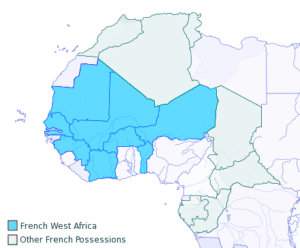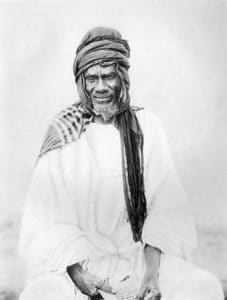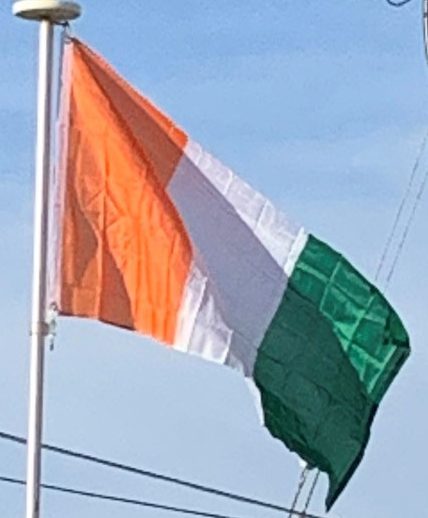
France’s main goal was to stimulate the production of exports. Coffee, cocoa, and palm oil crops were soon planted along the coast. Ivory Coast stood out as the only West African country with a sizeable population of settlers; elsewhere in West and Central Africa, the French and British were largely bureaucrats. As a result, French citizens owned one-third of the cocoa, coffee, and banana plantations and adopted the local forced-labor system.
Throughout the early years of French rule, French military contingents were sent inland to establish new posts. Some of the native population and former slave-owning class resisted French settlers. Among those offering greatest resistance was Samori Ture, who in the 1880s and 1890s was conquering his neighbors, re-establishing slavery and founding the Wassoulou Empire, which extended over large parts of present-day Guinea, Mali, Burkina Faso, and Ivory Coast. Samori Ture’s large, well-equipped army, which could manufacture and repair its own firearms, attracted some support throughout the region from chiefs who sought to play the two sides off against each other. The French responded to Samori Ture’s expansion and conquest with military pressure. French campaigns against Samori Ture, which were met with greater resistance than usual in tribal warfare, intensified in the mid-1890s until he was captured in 1898 and his empire dissolved.

France’s imposition of a head tax in 1900 to support the colony’s public works program provoked unexpected protests. Many Ivoirians saw the tax as a violation of the protectorate treaties because they felt that France was demanding the equivalent of a coutume from the local kings, rather than the reverse. Many, especially in the interior, also considered the tax a humiliating symbol of submission. In 1905, the French officially abolished slavery in most of French West Africa. From 1904 to 1958, Ivory Coast was part of the Federation of French West Africa. It was a colony and an overseas territory under the Third Republic. In World War I, France organized regiments from Ivory Coast to fight in France, and colony resources were rationed from 1917–1919. Some 150,000 men from Ivory Coast died in World War I. Until the period following World War II, governmental affairs in French West Africa were administered from Paris. France’s policy in West Africa was reflected mainly in its philosophy of “association”, meaning that all Africans in Ivory Coast were officially French “subjects”, but without rights to representation in Africa or France.
French colonial policy incorporated concepts of assimilation and association. Based on the assumed superiority of French culture, in practice the assimilation policy meant the extension of French language, institutions, laws, and customs to the colonies. The policy of association also affirmed the superiority of the French in the colonies, but it entailed different institutions and systems of laws for the colonizer and the colonized. Under this policy, the Africans in Ivory Coast were allowed to preserve their own customs insofar as they were compatible with French interests, such as the recent abolition of the slave trade.
